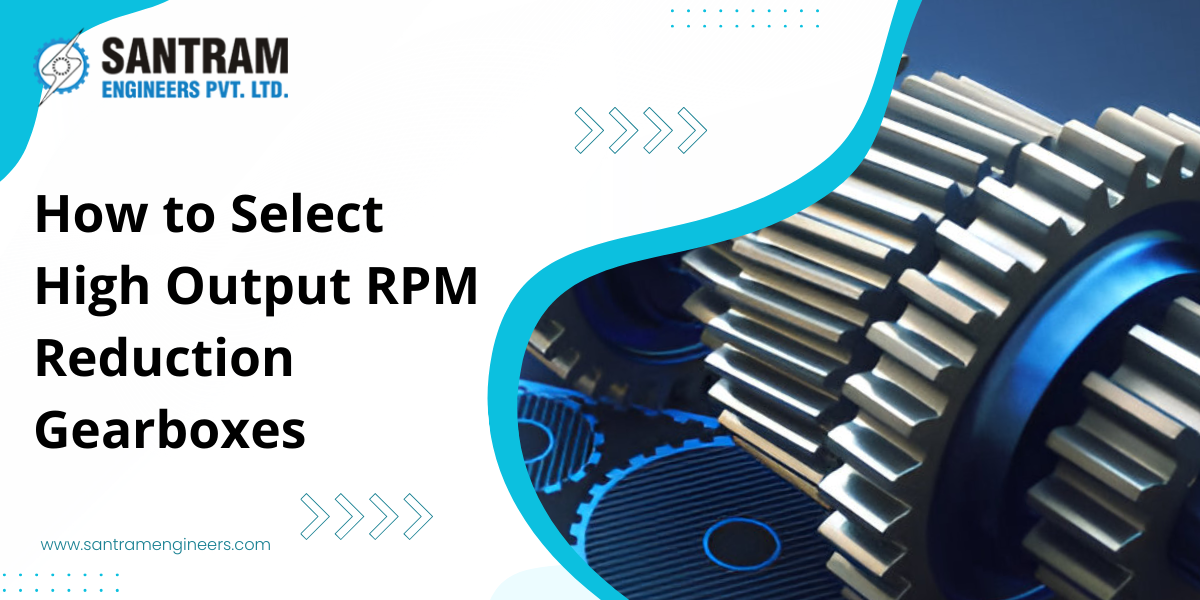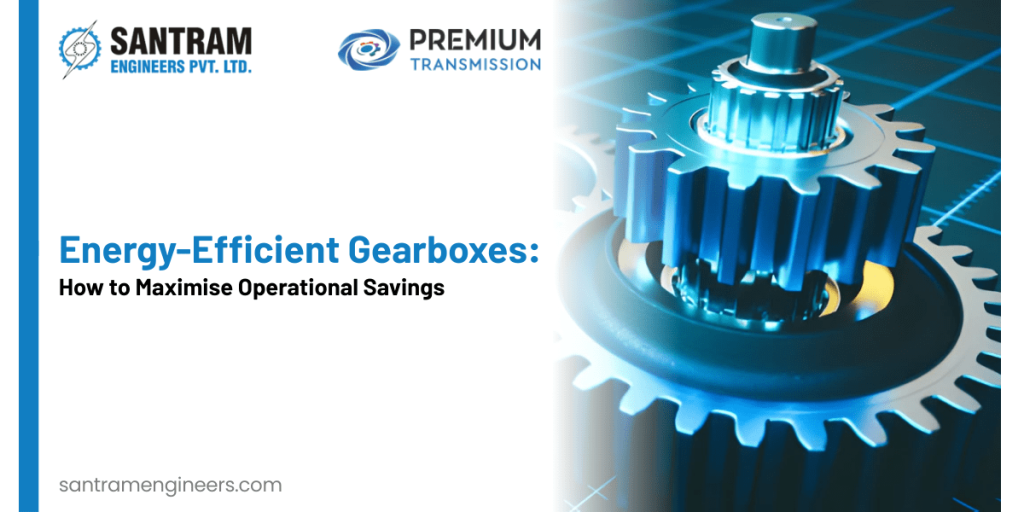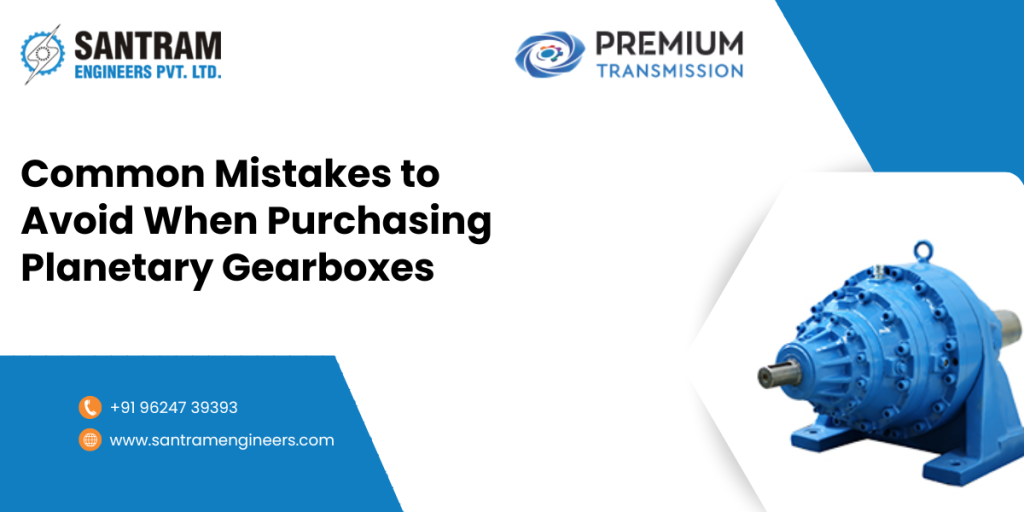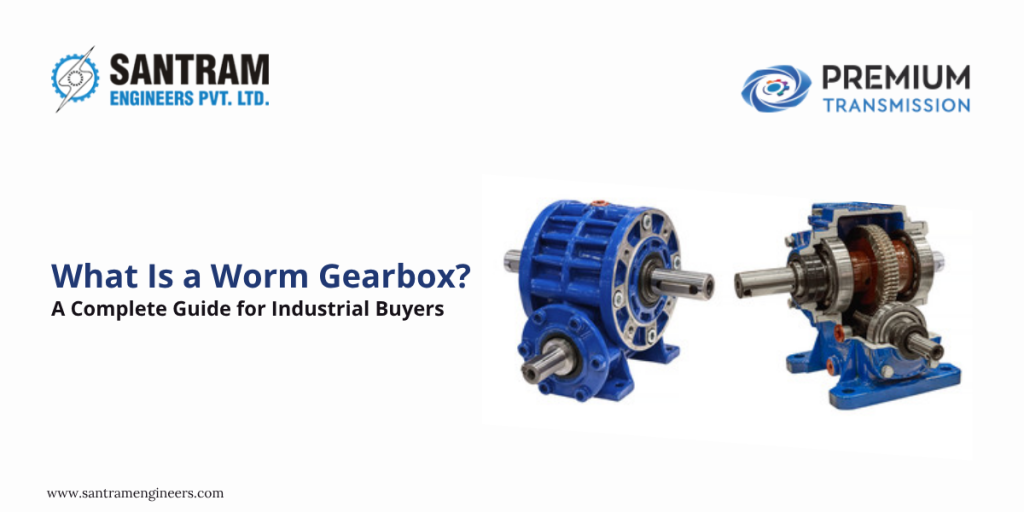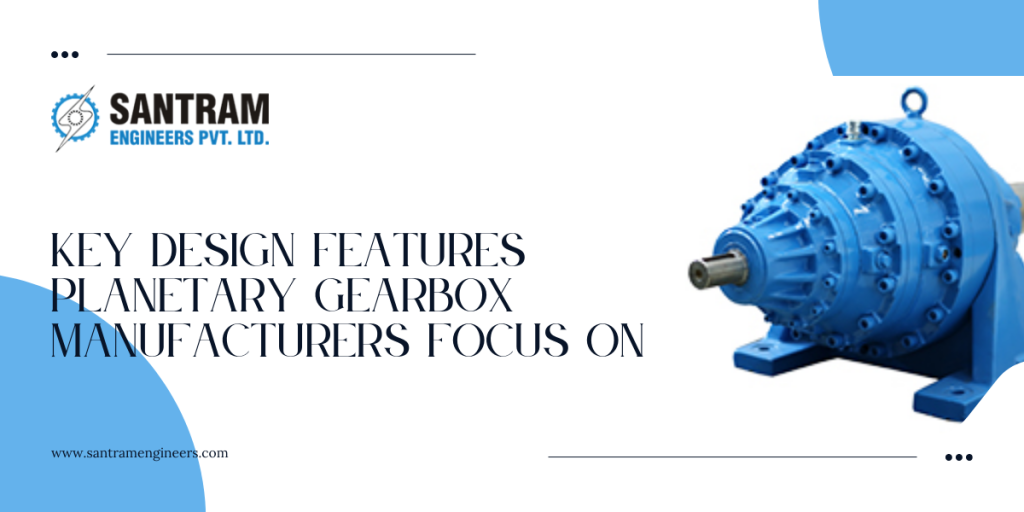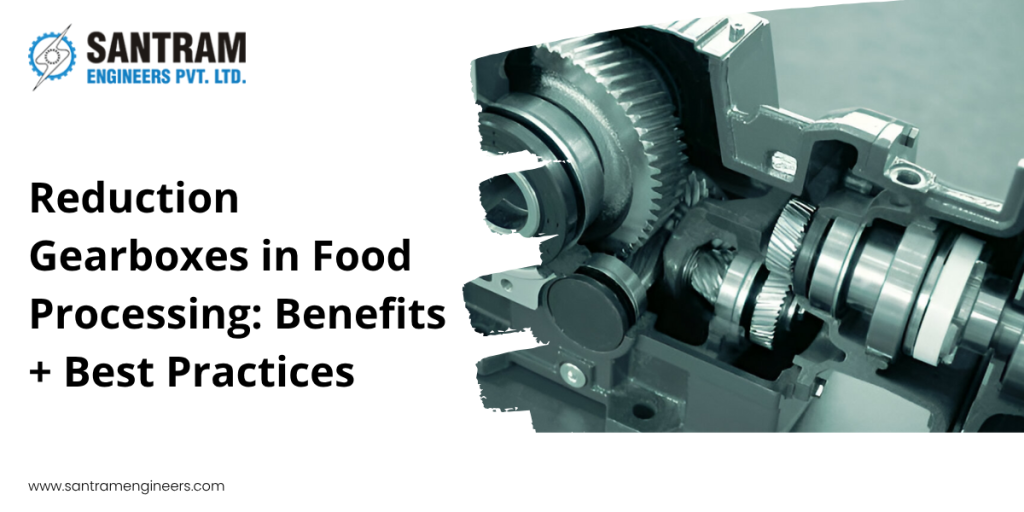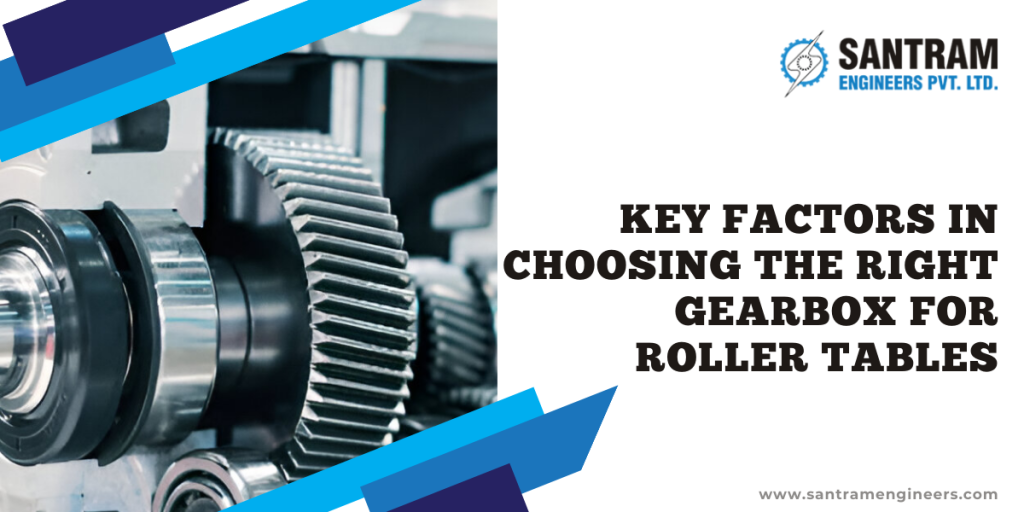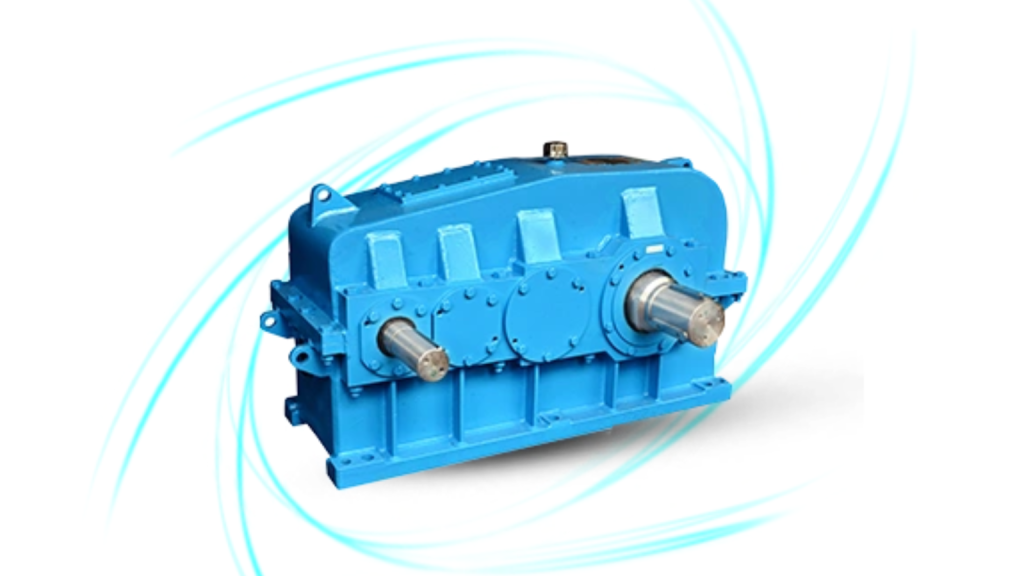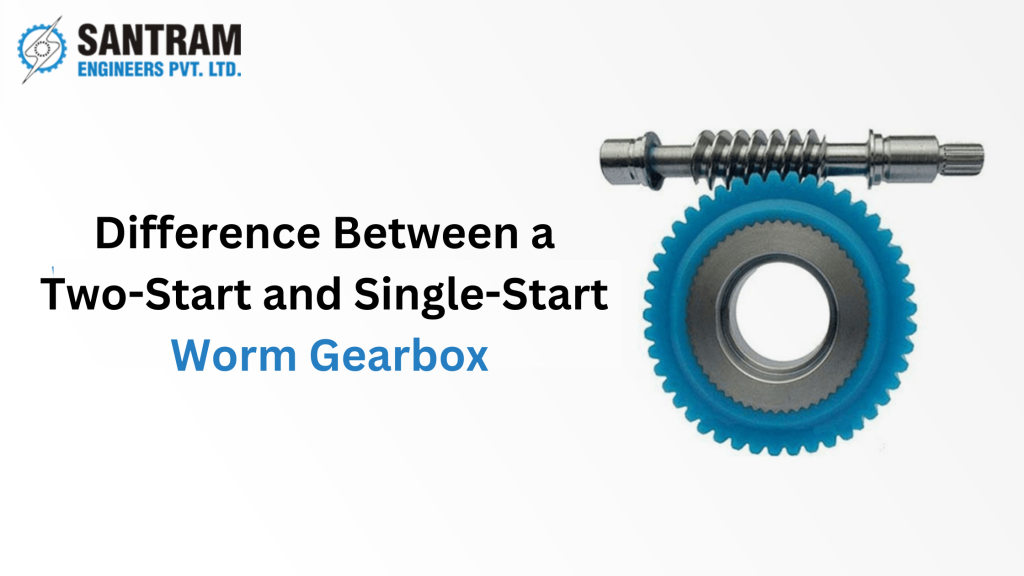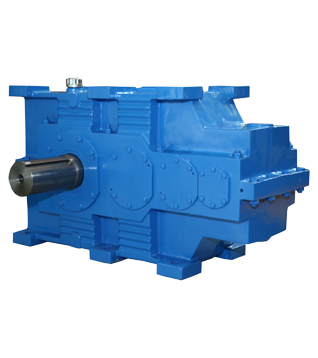In the dynamic and demanding world of industrial operations, the performance and efficiency of machinery depend heavily on the transmission systems that drive them. One such critical component is the industrial gearbox, especially when high output RPM reduction is required. From manufacturing plants and steel mills to mining operations and energy plants, the right gearbox ensures consistent power transmission, increased lifespan of machinery, and reduced operational downtime.
Choosing the right gearbox isn’t just a technical decision—it’s a strategic one. Businesses must weigh multiple factors, including performance specifications, space limitations, and environmental conditions. As one of the most trusted gearbox dealers in India, Santram Engineers emphasises the importance of making informed decisions to ensure your gearbox investment delivers maximum value over time.
This guide explores 12 essential factors businesses must consider when selecting high output RPM reduction gearboxes for industrial applications.
12 Factors to Consider When Selecting High Output RPM Industrial Gearboxes
1. Understand Application Requirements
Every industrial process has unique mechanical and operational requirements. Whether you’re driving a conveyor belt, operating a mixer, or powering a heavy-duty crane, the first step in gearbox selection is to clearly define your application needs.
- What is the load type—constant, variable, or shock?
- How many hours per day will the system operate?
- Is the operation continuous or intermittent?
Answering these questions helps determine the duty cycle, required RPM reduction ratio, and overall performance expectations. An improperly matched gearbox can lead to premature wear, increased maintenance costs, or even complete system failure.
2. Gearbox Type and Configuration
The type of industrial gearbox you select will depend heavily on the nature of your application. Some common configurations include:
- Helical Gearboxes: Known for efficiency and quiet operation; ideal for heavy loads.
- Bevel Gearboxes: Suitable for right-angle orientation and high torque applications.
- Worm Gearboxes: Offer high reduction ratios in compact spaces, but are less efficient.
- Planetary Gearboxes: Deliver compact power with high torque density, often used in precision applications.
Choosing the right type also involves considering shaft orientation, gear alignment, and load distribution. Leading gearbox dealers like Santram Engineers often provide consulting services to help businesses select the best configuration for their operational setup.
3. Torque and Power Handling Capabilities
Torque is the backbone of gearbox performance. It directly influences the gearbox’s ability to drive the load. When evaluating gearboxes, consider both:
- Rated Torque: The maximum torque the gearbox can handle continuously.
- Peak Torque: The highest torque it can sustain momentarily without damage.
Also, ensure that the gearbox can handle the motor’s input power (usually measured in kw or HP). Oversizing the gearbox may lead to higher initial costs, while undersizing can lead to mechanical failure and increased downtime.
4. Material and Build Quality
Material selection is vital in determining a gearbox’s durability and longevity. Gearboxes constructed with high-strength alloy steel, case-hardened gears, and robust cast iron housings offer better resistance to wear, corrosion, and thermal stress.
In industrial settings where the gearbox is subject to harsh environments, like exposure to dust, moisture, or chemicals, build quality becomes even more important. Santram Engineers’ industrial gearboxes are known for their rugged construction and quality-tested components that meet global standards.
5. Thermal Performance and Cooling Systems
Gearboxes generate heat during operation, especially under high loads or continuous use. Poor thermal management can lead to oil degradation, gear wear, and reduced efficiency.
When selecting a gearbox, consider:
- Thermal ratings for continuous operation
- Built-in cooling fins or external cooling systems
- Lubrication methods—forced lubrication vs. splash systems
In high-speed applications, advanced cooling mechanisms can extend gearbox life and ensure uninterrupted performance.
6. Mounting and Space Constraints
Installation space and mounting flexibility are often overlooked but crucial aspects. Ensure that the gearbox fits the available space and is compatible with existing drive systems. Consider:
- Foot, flange, or shaft-mounted designs
- Orientation—horizontal vs. vertical
- Accessibility for maintenance
Leading gearbox suppliers in India provide customisation options to accommodate space constraints without compromising on performance.
7. Lubrication Requirements
Proper lubrication is critical for ensuring the smooth functioning and extended lifespan of an industrial gearbox. Lubrication reduces friction, prevents overheating, and protects internal components from wear and corrosion. When selecting a gearbox, it’s essential to understand its specific lubrication needs based on the operating conditions and load.
- Type of lubricant: Synthetic or mineral oils, depending on temperature, load, and speed.
- Lubrication method: Splash, forced, or oil bath systems depending on design and duty cycle.
- Maintenance intervals: Some gearboxes require frequent oil changes; others offer sealed-for-life options for low-maintenance environments.
Reliable gearbox dealers such as Santram Engineers provide gearboxes with advanced lubrication systems that ensure consistent performance even under extreme operating conditions. For industries operating in high-temperature or high-dust environments, enhanced lubrication systems can significantly improve operational efficiency.
8. Customisation and Modularity
Not all industrial operations are the same. Some demand gearboxes that can be tailored to unique specifications. Customisation options may include:
- Special gear ratios
- Non-standard shaft sizes
- Unique mounting arrangements
- Corrosion-resistant coatings
In addition, modular gearboxes offer the flexibility to adapt or upgrade components like motor flanges, couplings, or output shafts without replacing the entire unit. This modularity allows industries to scale or repurpose existing equipment as operational demands evolve.
Santram Engineers is known for offering modular gearbox solutions that align with complex industrial needs, ensuring maximum adaptability without sacrificing performance.
9. Noise and Vibration Control
In many industrial environments, controlling noise and vibration is crucial, not just for operator comfort but also to ensure machinery longevity and precision. Excessive vibration can indicate misalignment, poor balancing, or internal wear, all of which may lead to premature gearbox failure. High noise levels, meanwhile, may breach workplace safety regulations and contribute to long-term hearing damage.
When selecting an industrial gearbox, look for features such as:
- Precision-machined gears to minimise backlash
- Helical gear designs for quieter operation
- Damping systems or isolators to reduce vibration transmission
Santram Engineers exclusively sources products from Premium Transmission Limited, a renowned manufacturer known for its gearboxes designed with superior NVH (Noise, Vibration, and Harshness) performance, ensuring enhanced durability and smooth operation. The gearboxes are ideal for operations where consistent, low-noise performance is a priority, such as in packaging, food processing, or precision engineering industries.
10. Cost and Availability
While cost is always a significant factor in any capital equipment decision, businesses must look beyond the initial purchase price when evaluating an industrial gearbox. Consider the total cost of ownership (TCO), which includes:
- Energy efficiency and power savings over time
- Maintenance frequency and costs
- Spare part availability and logistics
- Downtime costs due to repairs or replacements
A lower-cost gearbox with limited local support or delayed spare parts could become significantly more expensive in the long run. Partnering with reputed gearbox dealers ensures competitive pricing and a reliable supply chain, and prompt support.
11. Safety & Compliance with Industry Standards
In industrial environments, safety is non-negotiable. Gearboxes must comply with national and international quality and safety standards. Look for certifications such as:
- ISO 9001 for quality management
- CE marking for European compliance
- ATEX certification for use in explosive environments
Additionally, the industrial gearbox should be designed with built-in safety features like overload protection, proper guarding, and emergency shutdown mechanisms. Choosing a gearbox that complies with regulatory standards ensures operator safety and also streamlines audits and inspections.
Premium Transmission Limited adheres to rigorous quality benchmarks, offering gearboxes that comply with global safety and performance standards, making them a trusted name among gearbox manufacturers across India and beyond.
12. Reliability, Supplier Reputation, and Support
The reputation of your gearbox supplier can significantly impact your operational continuity. A gearbox is a long-term investment, and businesses need assurance that their supplier can provide consistent product quality, post-sale support, and technical assistance.
When evaluating suppliers, consider:
- Proven industry experience
- Client testimonials and case studies
- Warranty and service agreements
- Availability of skilled support engineers
Partnering with a reputable supplier like Santram Engineers means more than just a purchase. It’s a relationship built on trust, reliability, and performance. With decades of experience and a nationwide presence, the company offers responsive service, on-site technical guidance, and a deep understanding of India’s industrial gearbox needs.
Helpful FAQs
Q1. How do I determine the correct RPM reduction ratio for my industrial application?
To find the correct RPM reduction ratio, start by identifying the speed at which your motor operates and the desired speed at the output shaft. The reduction ratio is simply the input RPM divided by the output RPM. Consulting with an expert from a reputable gearbox dealer can help you match this with a gearbox model that meets your torque and efficiency requirements.
Q2. Can high-output RPM reduction gearboxes be integrated with automation systems?
Yes, many modern industrial gearboxes are designed for integration with PLCS and industrial automation systems. Look for models that support feedback sensors, motor encoders, or variable frequency drives (VFDS) to enable remote monitoring and performance control.
Q3. What environmental conditions affect gearbox lifespan the most?
Extreme temperatures, high humidity, abrasive dust, and corrosive chemicals can all reduce gearbox lifespan. Enclosures or special surface treatments may be necessary in such conditions.
Q4. How long does it typically take to receive a custom-configured gearbox in India?
Lead times vary by complexity, but most custom gearboxes can be delivered within 4–6 weeks, thanks to localised manufacturing and distribution capabilities.
Choose the Right Industrial Gearbox for Long-Term Performance
Selecting the right industrial gearbox is crucial for ensuring long-term reliability, efficiency, and the continued success of your operations. As the largest gearbox distributor of Premium Transmission Limited in India, Santram Engineers offers unmatched expertise and access to premium, high-performance products designed for demanding industrial applications.
Whether you need high output RPM reduction, modular configurations, or specialised materials for extreme conditions, our team is here to provide tailored solutions that meet your unique needs. With decades of experience, engineering excellence, and a nationwide support network, Santram Engineers is your trusted partner for reliable gearbox solutions.
Reach out to us at +91 96247 39393 or email us at sales@www.santramengineers.com to discover the ideal industrial gearbox for your business and enjoy performance that drives growth.

